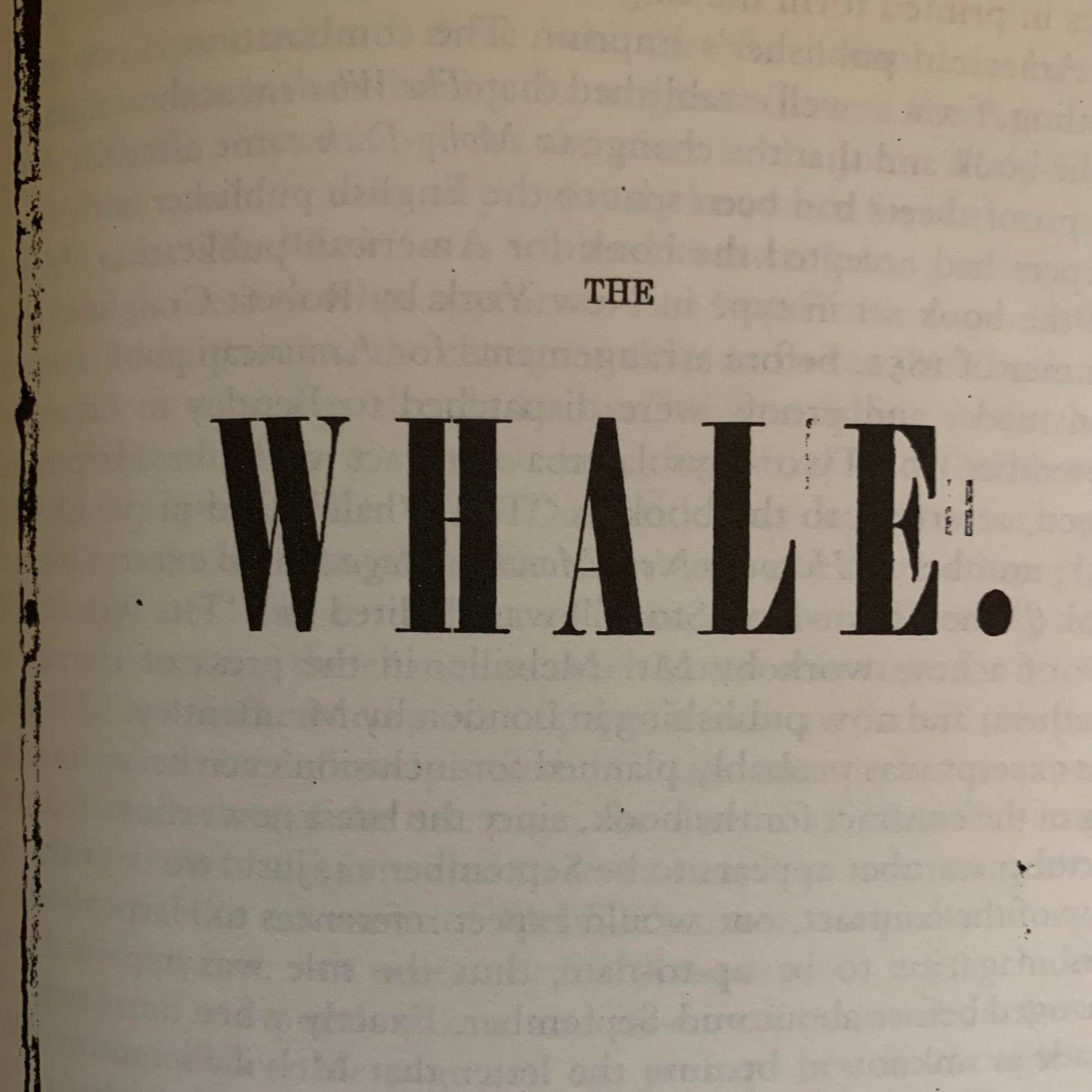I hate how drawn I am to Herman Melville’s Moby-Dick, because saying that I am reading it, or that I enjoy it, does not come off as some casual thing, but as a whole undertaking, and as a commitment to a literary canon I actually have a lot of beef with. Reading it is, indeed, an undertaking; it requires investment, but it’s also a book I really love, because it’s is a book about the ocean, and it’s a book about people more than it’s a book about the ocean, and it’s a book about death and trust more than it’s a book about a whale.
I have now read Moby-Dick twice. The first time I read it, I thought it was about whaling and a whale. This is a really bad way to read Moby-Dick, because the first whale doesn’t even show up until over halfway through the book, and because believing the book to be about whaling meant that I missed the significance of the characters, that first time. The characters are everything in this book. Believing this book to be about whaling also left me feeling really bored the first time, because I, like Ahab, was waiting for this one creature to show up. But the reader doesn’t see Moby Dick until they are nearly 95% of the way through the book, and by then—if the reader is fully participating in the book, which I wasn’t the first time—it’s clear that the point of the book is that Ahab’s obsession with this creature is going to kill everyone, and not that some grand, noble hunt is going to take place. By this point, the book is about Ahab’s “fatal pride” (519).
I am drawn to this book because it is about men going out to sea and not coming back because one man is stupid. I am drawn because this is the moral that usually isn’t told, and yet this moral validates something I know so deeply; it makes plain a concept I was raised with, which is that there is no glory in going out, unprepared, into this world, as if the worst that can happen is that we return with good stories. As my mother always told me as a kid, nature is big and it doesn’t care. Nature will kill us. I am an Alaskan, which means I know people with these stories, and I know of people who didn’t come home to tell these stories.
Keep reading with a 7-day free trial
Subscribe to Squashed to keep reading this post and get 7 days of free access to the full post archives.


